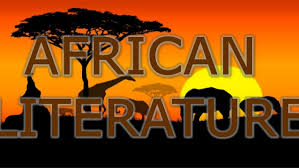Okay, cheers of the new month. Since the last update for March, between you and I, I have not finished reading James Marlon’s ‘The Brief History of Seven Killings’. It has not been easy, keeping my day job which I have had no break from everyday since March. I am now on Page 150. Please clap for me jare. Sure, I am still reading it.
I found and joined The Port Harcourt Book Club. It has been very exciting. The book club had been existing under my nose for a while and I never knew. As usual, I stumbled upon its existence on twitter. They read a book every month and meet for the book discussion and some kind of review every last Sunday of that month by 4pm at a venue of choice in Port Harcourt. For the month of April, they, or should I say we are reading ‘Love is Power or Something Like That‘ by A. Igoni Barrett, the book is available at Bookville Bookshop, Mummy B road, Port Harcourt. It is an open book club, so if you are in Port Harcourt or passing by you can join. Find them on twitter, @ThePHCBookClub
Between March and now, I have knocked down two books, and both are short stories collections. The one for The Port Harcourt Book Club, ‘Love is Power or Something Like That’ by A. Igoni Barrett, a Port Harcourt boy himself and ‘Smithereens of Death’ by Olubunmi Familoni an Ibadan base writer. I am unto the third book, ‘We Need New Names‘ by NoViolet Bulawayo, the 2014 Etisalat Prize for fiction winner. It is a good progress on my reading habit if you ask me. And of course, their reviews are coming right up, maybe this month too.
Next on the blog should be my short review of Elnathan John’s ‘Born On A Tuesday‘. I have managed to finish the last two chapters which the pity that flushed me up for Ahmed did not allow me to read. Watch this space.
THE OTHER THINGS…
Nigeria in suffering from fuel scarcity. I know it is no news. But guys, it is not easy, the money I have spent on fueling my car since this brouhaha started is already double my monthly usual and mounting. It is not funny anymore. I just hope that this week shall be the end of it, if not maybe what happened in 199somthing will happen again.
Among other things, I love music and of all kinds, so far it sounds good to me and fits my mood per time. There is this beautiful Nigeria female sensation Aramide. She sings Afro Soul, and I came across her last year. She has a new music video out for her single Love Me, in which she featured Adekunle Gold, another Afro Soul sensation I will say.

A shot from the video – Aramide & Adekule Gold Courtesy : BellaNija
I love the feel of the song, its mixture of Yourba and English Lyrics, the flush of the African feel in the instrumentals and the lush video shoot and quality. It has been on replay on my music player for a while. Enjoy the new video here.
Catch you later guys.


